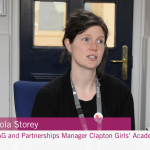Mental health – My story
Mental Health Awareness Week is a great opportunity to raise awareness about the amazing work that charities do in support of their communities and to squash some of the stigma that is sadly still associated with accessing mental health support. It is also an opportunity to reflect on our own journeys. This week, BIG Alliance Programme Manager, Jonathan Tait, shares his own experiences including the difference that accessing mental health support made to him.
My story starts around 10 years ago. I had recently graduated from university and had returned to London to start my first job. That job happened to be working for a mental health charity which supported gang affected young people in my home borough of Camden. I loved the work largely because I spent my days meeting amazing young people, many of whom had really interesting stories to tell. I had very little prior knowledge of mental health and so working at that organisation also offered me insight into associated challenges and the difference that accessing support can make to people’s lives. I began to think about my own mental health and soon realised that I had been experiencing symptoms of depression for quite a long time. I think that many of us go through life without much consideration of our mental health and wellbeing but confronting it every day at work was a reality check for me.
It took me a little while to decide to seek help from a mental health professional. The main barrier for me was a feeling of guilt. I was the product of a relatively privileged upbringing and was lucky to have a very close and supportive family. Some of the young people that I was working with had had a very different start to life. I felt ashamed that I should need help despite all of the opportunity that had been given to me and believed that my problems were trivial compared to those that others faced. At the time, accessing support seemed self-indulgent but I continued to be unhappy and reached a point where I felt that I needed to act. I now know that mental health related challenges can affect any of us, regardless of our life circumstances, and that there is no shame in asking for help.
I began seeing a psychotherapist on a weekly basis. At first it was a strange experience. Opening up to anyone is hard and when that person is a complete stranger, it can particularly daunting. Looking back, I am really pleased that I made the decision to seek help. Just a few weeks later, my mum was given a terminal cancer diagnosis. She had been a picture of health and so it came as a complete shock. The doctors gave her 18 months to live and, almost exactly 18 months later she passed away. I continued my weekly sessions with the psychotherapist throughout her illness and for a few years following her death. With that support available to me, I was able to process the grief and to continue addressing the things that had made me decide to seek help in the first place. It wasn’t an easy time but I was very lucky that I had the space to talk about how I was feeling. Without it, I’m not sure that I would have coped.
There was a key difference between my experience of accessing mental health support and the experience that many others face. My family could afford to help me financially. Therapy is expensive and so for lots of people, paying is simply not an option. There are some amazing NHS services that are free to access but demand is huge, waiting lists are long and often, access to support is time limited.
Mental Health charities play an absolutely vital role in supporting those who cannot access help via other means. The past year has been tough for many of us and mental health charities that were already overstretched and under resourced are now facing an increased demand for their services. Suicide is the single biggest killer of young men and so, for some, access to help can quite literally mean the difference between life and death. In a country where we believe in free healthcare for all, it seems so unjust that social inequality should be such a significant factor in a person’s opportunities to receive help.
My experience of the difference that mental health services made to my life inspired me to give some of my time to try to help ensure that others that are facing similar circumstances can access support. At the start of 2020 I was really honoured to be given the opportunity to join the board of an amazing charity called Brandon Centre. Brandon Centre provides mental health and sexual health services for under 25s. The incredible dedication of their staff team enables over 6000 young people to access essential support. I have been lucky enough to hear about the difference that Brandon Centre has made to so many young lives. Brandon Centre, like many other organisations, is only able to continue operating with donations and support from the wider community, including businesses. Economic uncertainty means that there will be difficult times ahead and so it is more important than ever for us to invest in ensuring that services, like the ones that Brandon Centre provides, are sustainable.
Throughout Mental Health Awareness Week you will have seen numerous campaigns calling for those who are struggling to seek help. The reality is that without sufficient resources, mental health charities won’t be able to provide that help. It takes courage to admit that you are struggling and so we owe it to those that are brave enough to make sure that support is available.
To stay up to date with the latest news, opportunities and success stories, please sign up to receive our monthly newsletter, here.

